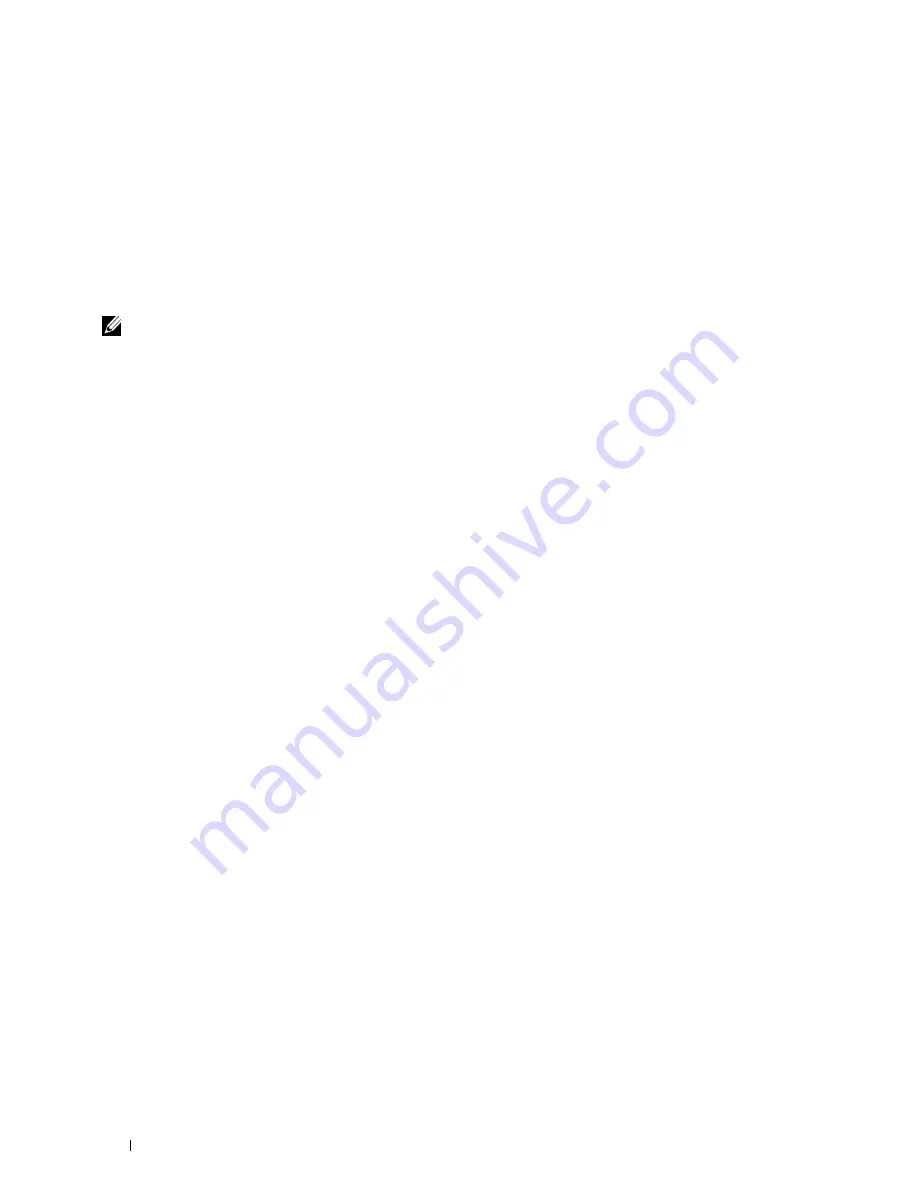
204
Print Media Guidelines
Fiber Content
Most high-quality xerographic paper is made from 100% chemically pulped wood. Paper containing fibers such as
cotton possess characteristics that can result in degraded paper handling.
Recommended Paper
To ensure the best print quality and feed reliability, use dry 75 g/m
2
(20 lb) xerographic paper. Business paper
designed for general business use also provide acceptable print quality. Only use paper able to withstand high
temperatures without discoloring, bleeding, or releasing hazardous emissions. The laser printing process heats paper
to high temperatures. Check with the manufacturer or vendor to determine whether the paper you have chosen is
acceptable for laser printers.
NOTE:
Always print several samples before buying large quantities of any type of print media. When choosing any print media,
you should consider the weight, fiber content, and color.
Unacceptable Paper
The following paper types are not recommended for use with the printer:
• Chemically treated paper used to make copies without carbon paper, also known as carbonless paper, carbonless
copy paper (CCP), or no carbon required (NCR) paper
• Preprinted paper with chemicals that may contaminate the printer
• Preprinted paper that can be affected by the temperature in the fusing unit
• Preprinted paper that require a registration (the precise print location on the page) greater than ±0.09 inches, such
as optical character recognition (OCR) forms
In some cases, you can adjust registration with your software program to successfully print on these forms.
• Coated paper (erasable bond), synthetic paper, thermal paper
• Rough-edged, rough or heavily textured surface paper, or curled paper
• Recycled paper containing more than 25% post-consumer waste that do not meet DIN 19 309
• Multiple-part forms or documents
• Print quality may deteriorate (blank spaces or blotches may appear in the text) when printing on talc or acid paper.
• Moist paper that may cause wrinkle
Selecting Paper
Proper paper selection helps prevent jams and ensures trouble-free printing.
To help avoid jams or poor print quality:
• Always use new, dry, and undamaged paper.
• Before loading the paper, identify the recommended print side of the paper. This information is usually indicated
on the paper package.
• Do not use paper that you have cut or trimmed yourself.
• Do not mix print media sizes, weights, or types in the same source. This may result in a paper jam.
• Do not remove the PSI while a job is printing.
• Ensure that the paper is properly loaded in the MPF or PSI.
• Flex paper back and forth, and then fan them. Straighten the edges of the stack on a level surface.
Summary of Contents for C1765nf Color Laser
Page 2: ......
Page 16: ...14 Contents ...
Page 18: ...16 ...
Page 20: ...18 Notes Cautions and Warnings ...
Page 22: ...20 Dell C1765nf C1765nfw Color Multifunction Printer User s Guide ...
Page 34: ...32 ...
Page 36: ...34 Removing Packaging Material ...
Page 48: ...46 Connecting Your Printer ...
Page 54: ...52 Setting Up Your Printer ...
Page 58: ...56 Setting the IP Address ...
Page 66: ...64 Loading Paper ...
Page 90: ...88 Installing Printer Drivers on Computers Running Macintosh ...
Page 92: ...90 ...
Page 98: ...96 Operator Panel ...
Page 204: ...202 Understanding the Printer Menus ...
Page 212: ...210 Print Media Guidelines ...
Page 230: ...228 ...
Page 234: ...232 Printing ...
Page 248: ...246 Copying ...
Page 276: ...274 Scanning ...
Page 300: ...298 ...
Page 316: ...314 Specifications ...
Page 317: ...315 Maintaining Your Printer 25 Maintaining Your Printer 317 26 Clearing Jams 331 ...
Page 318: ...316 ...
Page 345: ...Clearing Jams 343 8 Close the rear cover ...
Page 346: ...344 Clearing Jams ...
Page 347: ...345 Troubleshooting 27 Troubleshooting 347 ...
Page 348: ...346 ...
Page 367: ...365 Appendix Appendix 366 Index 371 ...
Page 382: ...380 Index ...






























